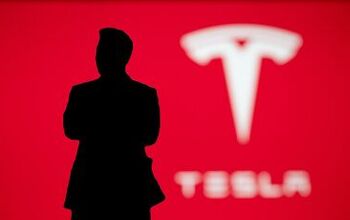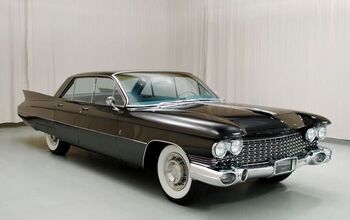Expert: 54.5 MPG CAFE Mark Reachable With Few Plug-Ins
For automakers worried about meeting the 54.5 mpg CAFE mark by 2025, Johnson Controls — the ones who predicted the end of the steering wheel by 2025 — assured them that the target could be met, and without the need to turn everything into a plug-in or full EV.
Johnson Controls own Brian Kessler, who heads the company’s battery division, claims that a combination of turbocharging, stop-start systems, direct injection and other bleeding-edge fuel economy technology could be leveraged to meet this target. He then added that no automaker necessarily needs to go the route of Tesla, Nissan or Toyota to meet the CAFE target, implicitly endorsing the Environmental Protection Agency’s approach to fuel economy regulations over that of the California Air Resource Board’s mandate of electric batteries or fuel cells for zero-emission vehicles.
While most manufacturers have had mixed results with plug-in hybrids and other EVs, they’ve had better luck upgrading the internal combustion engine to meet the challenge before them. Downsized and turbocharged powertrains, like Ford’s EcoBoost engine lineup, were cited as a cost effective solution. 80 percent of the Blue Oval’s line of vehicles can be optioned with an EcoBoost engine, spreading the cost of development throughout the line. Of course, downsized turbo engines are notorious for delivering big numbers on government fuel economy tests, while falling short of real world fuel economy expectations.
More by TTAC Staff


































Comments
Join the conversation
Hopefully we'll get a change of direction in Washington and these standards will be rolled back or scrapped altogether. The challenge is that car companies actually like these regulations, as it drives up the ASP of new cars and creates barriers to entry, so I'm not optimistic that the party currently out of power will be motivated to change them. Once again, the consumer and taxpayer will be left holding the bag. . .
Start/stop can't be accounted for in the current EPA testing protocol. Does Mr. Kessler also predict a change in the way fuel efficiency is measured? If so, then we can be assured the 2025 figures will be met, as the remarkably complex CAFE system will continue to be gamed by all the interested parties.
How about upping the US standard for diesel to 51 cetane from it's current 40 cetane standard. The manufacturers could then design an efficient easier for the everyday hack. Then the US could lead the world in FE.
What happens when congress passes a law declaring that carbon dioxide is not a pollutant for purposes of the clean air act? If I understand correctly the 54.5 mpg EPA regulations are based on the EPA having authority to regulate carbon dioxide under the clean air act. Pretty sure that CAFE would revert to the old regulations, but there would be separate state requirements automakers would have to meet. I'm somewhat concerned that car manufacturers are gaming the fuel economy tests in a way that costs consumers over the long run. They're already building cars with small turbocharged engines that do much better on the test than the real world. Engines with direct injection are having intake valve deposit problems. What will it cost to rebuild a 10 speed automatic transmission? Consumers like better fuel economy, but not if total costs go up.